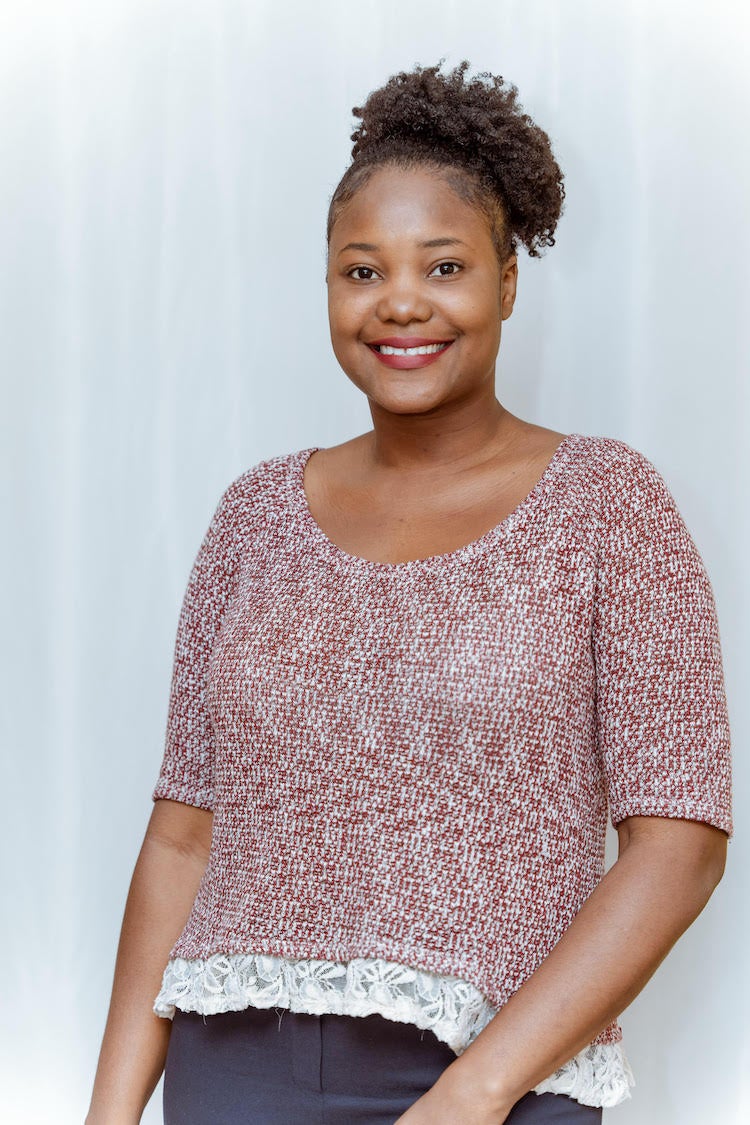News
Least responsible, hardest hit: New UNFPA brief explores climate change’s disproportionate harm on people of African descent
- 21 March 2023
News
UNITED NATIONS, New York – In 2021, double disaster struck Haiti when Tropical Storm Grace hit the island nation just two days after it was rocked by a 7.2 magnitude earthquake.
As rain lashed the country’s already damaged infrastructure, midwife Jeffthanie Mathurin remembers contraceptive deliveries getting stuck on the roads – presenting a major challenge for women and girls.
“We noticed this catastrophe increased the risk of more women getting pregnant unintentionally,” she told UNFPA. “The poorest people in the country, such as rural women, face the worst consequences of climate change.”
In a new advocacy brief, “In Our Words: Voices of Women of African Descent for Reproductive and Climate Justice”, UNFPA explores how climate change disproportionately harms women of African descent and other members of marginalized communities – and exacerbates obstacles to their achievement of sexual and reproductive health and rights.

Published on 21 March, the International Day for the Elimination of Racial Discrimination, the brief also examines how society’s poorest and most vulnerable, despite having contributed very little to the global climate crisis, are too often left to deal with its worst effects.
Haiti, for instance, was responsible for just 0.01 per cent of the world’s greenhouse gas emissions in 2021, but ranked in the top three for countries most severely affected by climate-related extreme weather events between 2000 and 2019.
“We live in a country that cannot take one or two days of rain without turning into a catastrophe,” Ms. Mathurin said. “I want to live in a society that respects the lives of everyone – a society that respects women’s lives, my life and my body.”
Crisscrossing challenges
Climate change represents a threat to every person on the planet. But this global crisis will inflict disproportionate damage on people of African descent because many members of this community are already impacted by social, political and economic oppression, due to the legacies of slavery and colonialism.
Adding gender inequality into the mix exacerbates these issues, exposing women and girls to overlapping risks. Research indicates climate change can worsen maternal health outcomes, interrupt the delivery of essential health services, increase the likelihood gender-based violence will occur and heighten vulnerabilities to harmful practices such as child marriage.
Scientists say the crisis will only get worse. The Intergovernmental Panel on Climate Change warned last year that humanity is running out of time to secure a “liveable future” in the face of escalating heatwaves, droughts and floods.
“It is imperative that we act and adapt, including through upholding sexual and reproductive health and rights as a foundation of resilience and of the sustainable well-being of societies overall, “ said UNFPA Executive Director Dr. Natalia Kanem in a statement last year.
“We know that when women and girls can take control of their bodies and lives, it strengthens their ability to adapt to and weather the impacts of the climate crisis. They must have agency in making their own sexual and reproductive health choices, which stems first and foremost from having access to quality services, information and supplies.”
Scaling towards climate justice
UNFPA works with communities around the world to combat climate change and its unequal impacts. Its interventions have included an incubation programme for teams across east and southern Africa to develop innovative approaches to addressing climate change and female genital mutilation; entrepreneurship training and support for initiatives that promote Afro-Brazilian culture and knowledge in Rio de Janeiro; and workshops for young people in Costa Rica on caring for marine ecosystems and narrative storytelling.
Beyond this work, UNFPA has launched initiatives towards the further inclusion of people of African descent on its journey towards achieving its three transformative goals: Ending preventable maternal mortality, fulfilling unmet family planning needs and eliminating harmful practices.
But there still is a long way to go on this path: In its new advocacy brief, UNFPA underscores action points brought forward by civil society organizations and practitioners, which recommend recognizing the role of racism, investing in research on how climate change affects Afro-descendant communities and amplifying Afro-descendant voices and expertise along the road to climate justice.
“Frontline communities are experts of their own experience and know best what strategies and solutions will resolve the crises where they live,” Kwolanne Felix, from the Women Deliver 2023 conference, told UNFPA.